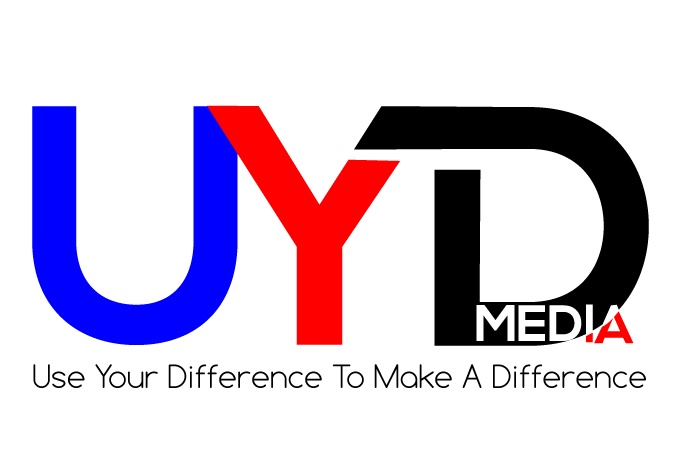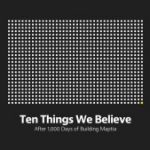(Photo by ziora.de)
‘…oh, so do you play ‘Indian’ music’ ?
‘…hey, was wondering if you could play some tabla for me..or sitar..’
‘..I really dig the Bhangra, mate’
‘..Oh so do you write your songs in ‘Hindu’ ? No….but like English isn’t REALLY your mother-tongue is it?’
‘..there’s this client who’s looking for an Indian artist. Do you have a Bollywood repertoire?’
‘….do you think you could find an Indian folk song to collaborate on with the tabla player who’ll also be taking part in our event’ ?
‘Is there a way we can make this sound more Indian..more exotic?’
These are a few milder examples of innocent enquiries I receive on a regular basis. To be clear, this isn’t about any grievances one might think I hold against any of them.
I became a musician because the constantly changing backdrops of my childhood made me desperate to find one constant that would make sense everywhere. And because talking usually came across as a somewhat frustrating practice which rarely enabled me to actually use it for what it was apparently meant for. Communication. Music on the other hand, made it ok for me to shut up and still make a point.
Of late however, my survival-kit turned passion turned profession seems to be grabbing me by the collar and turning me around to confront issues I thought I had long left behind me.
The fact that ‘Hindu’ isn’t even a language notwithstanding, it can be complicated enough trying to define what the word ‘Indian’ even stands for in 2015. A word that ironically, is not really ‘Indian’ in the first place, but a coinage by the British Raj when referring to what is today called the ‘Indian Subcontinent’– a republic of 29 states, each often with its own unique culture and language (with different scripts in some cases too), run by one of the most controversial Central governments in the recent past. Along with the countries of Pakistan, Bangladesh, Sri Lanka, Nepal and Bhutan who eventually formed their own mostly in the late 40’s and onwards. So even if I were just ‘Indian’, the chances of English being my native language would have been rather high due to it being the only one that usually works across the length and breadth of the country.
Being a TCK ‘German of Indian ethnicity’ who spent his formative years growing up in North Africa and London before moving to Europe to study a primarily American form of art after a slightly traumatised adoloscence in his so-called ‘native’ country in between however, does tend to come across as an entirely different league when trying to define.
I’m a Singer-Songwriter, Composer and trained Pianist/Multi-instrumentalist, whose musical roots lie primarily in Jazz. Although trends have been changing sporadically in the recent past, some of the above terms haven’t really been used very commonly when talking about ‘Indian’ musicians traditionally. Add to that the fact that I have always felt a very deep sense of aversion to identifying myself by nationality in the first place and my life does tend to come across as a long endeavour to dodge one label after the other.Trying to ‘hide’ my identity, being out of touch with my ‘culture’, speaking with a fake accent, being a ‘coconut’. These are just a few among many other allegations I have been accused of time and again.
The most interesting aspect to my reaction to such though, is probably the fact that I can’t bring myself to be in the least insulted by any of them.
I don’t have an ‘identity’ to hide. Primarily because I can’t think of one that would fulfill most peoples ideas of what that is in the first place. If child-psychologists are to be believed, over 80% of our adult personality traits are formed within the first seven years of age, a time of my life spent living in countries and cultures that weren’t even on the same continent my parents were born in. So one could argue that being out of touch with my so-called native culture comes somewhat naturally. But since societies usually like to define ‘culture’ within the realms of time and space, I have additional reservations as well. If practising Yoga (in it’s truest sense of the word), loving the fact how sexuality and feminism and free-thinking spiritual traditions were celebrated in ancient India is what ‘Indian’ culture is about, I’d be screaming ‘Indian’ from rooftops. But the reality of the state of affairs in the geographical space using the same name today can look very different sometimes.
And ‘Coconuts’? Are really, really great nuts. I love them. As I do my accent which has a life of it’s own and has and always will change to varying degrees depending on where I am. Contrary to what most people think though, the first time I consciously picked one up to fit in and ‘hide my identity’ was when my parents moved back to Kolkata. It was an Indian accent.
Coping with society’s knee-jerk reflex of putting everything into boxes in the smallest possible span of time is something that can get easier after years of practice, I guess. What does get a little irksome at times though, is the challenge I occasionally face finding acceptance for my work for what it is.
The complexities of the performing arts aren’t necessarily simplified by the fact that the process, involving interaction with other minds, is an integral part of the end-result. So while a painting or sculpture, for example, is self-sufficient in it’s statement without it’s creator actually having to be around, in music, the artist’s real-time presence is part of the the exhibit one way or the other. Which is when the labelling starts to feel like a threat to the same. Peoples assumptions. Of ‘who I am’. Or ‘where I come from’. What my ‘native language’ is.
If the ‘cow is holy’ to me.
At a recent global festival I seemed to face some skepticism when informing the organisers that I primarily represent Germany, (now my passport country) and have been doing so for over a decade. I’d like to think mine is one of the newer faces that symbolise the somewhat recent cosmopolitanism of this Central- European country. Nationality and heritage are not the same to me. A point of view not everyone always seems to share.
Due to poor communication, a few misprinted brochures went out. I was labelled ‘Indian’, as opposed to the ‘DE/IN’ I’ve grown so comfortable with over the years. So to clarify things I thought I’d prepare a speech on the night of the grand concert, featuring myriad musicians from all over the globe. A speech on how, at the end of the day, the only people I represent are not part of any single nation, but a head-space. That my tribe are those who prefer not to belong to one. But to all. Or none.
But when the time came, and the microphone was finally mine to own, the words seemed to wander off. The idea of trying to defend something that in it’s essence is a movement to look beyond lines and nomenclature felt like a trap. I was reminded again of how superfluous words as a medium can sometimes be, when trying to express thoughts that one cannot force another to understand. Or feel.
So I just did what I always have.
I sang my song instead.
Multiple award nominated Indo-German musician T.L. Mazumdar has been called ”among a handful of Indian musicians who are trying to break the Western Stereotype that they have to play Sitars or Tablas, or sing Bollywood and bhangra numbers” by Time-Out Magazine. He released his critically acclaimed Sophomore album BUeC, in 2014 featuring 13 musicians from Europe, India and USA and lives and works between Mannheim, Mumbai, Kolkata, Berlin and London.




